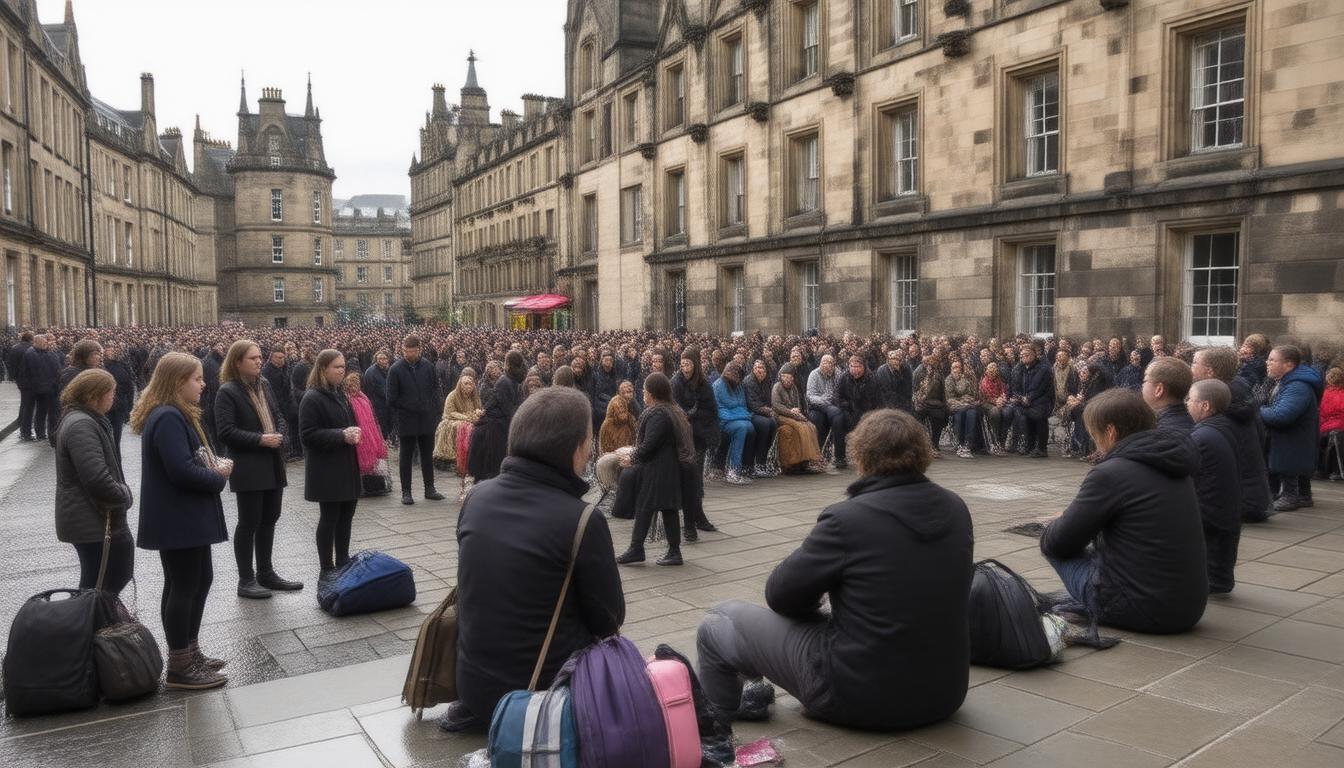In a decisive move to uphold housing standards and protect vulnerable populations, the City of Edinburgh Council has announced the relocation of over 700 homeless individuals from unlicensed temporary accommodations. This action is driven by the urgent need to address safety and legal compliance issues surrounding the houses in multiple occupancy (HMO) regulations, which have seen significant breaches within the city. As the council grapples with the rising number of households in temporary housing—reportedly increasing to over 5,000 this year from 3,570 in 2020—the focus is now on ensuring that all temporary accommodations meet the necessary licensing standards to guarantee the health and safety of residents. This article explores the implications of the council’s recent decisions, its strategic approach to relocate affected individuals, and future housing solutions aimed at fostering a safer living environment in Edinburgh.
Key Takeaways
- Edinburgh Council is relocating homeless individuals from unlicensed accommodations to comply with legal regulations.
- Over 700 households have been living in properties that fail to meet health and safety standards.
- The council has implemented temporary measures to prioritize lawful housing before the end of the month.
Understanding the Legal and Safety Implications of Unlicensed Accommodations
The City of Edinburgh Council is taking significant steps to address the pressing issue of unlicensed temporary accommodations, resulting in a plan to relocate hundreds of homeless individuals by the end of November
2024. This decision stems from the alarming revelation that more than 700 households are currently living in 28 properties that do not adhere to the licensing standards required for Houses in Multiple Occupancy (HMO). These accommodations had previously been employed as emergency solutions during the Covid-19 pandemic to tackle the rising numbers of homeless residents. However, legal experts have cautioned that using non-licensed housing contravenes existing laws and poses serious risks concerning health and safety, as these properties lack appropriate living conditions and tenant protections (City of Edinburgh Council, 2024).
In response to the council’s predicament, a temporary suspension on new applications for homeless housing has been implemented alongside a halt on non-urgent property repairs. The council aims to ensure that all individuals currently relying on unlicensed HMOs are provided with suitable, legally compliant housing before the end of November. Consequently, new allocations of council houses will be paused until January, with certain exceptions made for vulnerable individuals, including persons with disabilities and those awaiting discharge from healthcare facilities. Furthermore, the council has committed to accelerating the process of getting vacant properties back into operation for those in urgent need (Scottish Government, 2024).
This initiative is underscored by the recent surge in temporary housing needs, which escalated from 3,570 households in 2020 to over 5,000 this year. It is critical to note that to operate legally, properties classified as Houses of Multiple Occupancy must accommodate three or more residents from different households sharing essential amenities, with landlords required to secure an HMO license (Edinburgh Evening News, 2024). Such licensing ensures compliance with standards that protect the health and safety of tenants, highlighting the need for the council to rectify the current situation efficiently and responsibly.
Council’s Strategy for Relocation and Future Housing Solutions
In an effort to maintain compliance with housing regulations, the City of Edinburgh Council is actively working to secure lawful accommodations for those affected by the rapid increase in homelessness. The suspension of new homeless applications will allow the council the necessary time to focus on relocating individuals from unlicensed HMOs, ensuring that these placements meet health and safety regulations. The council’s plan not only targets immediate housing solutions but also emphasizes the importance of adequate support services to aid these vulnerable populations, including mental health resources and social integration programs (Cuthill, 2024). Furthermore, the council has initiated collaborations with local housing associations to increase the availability of licensed properties tailored to support those transitioning from temporary accommodations to permanent homes, thereby fostering an environment of sustainability and long-term relief for affected families (Murray, 2024). Such initiatives mark a proactive stance from the council in confronting the homelessness crisis and reaffirm its commitment to safeguarding the rights and well-being of all residents.





